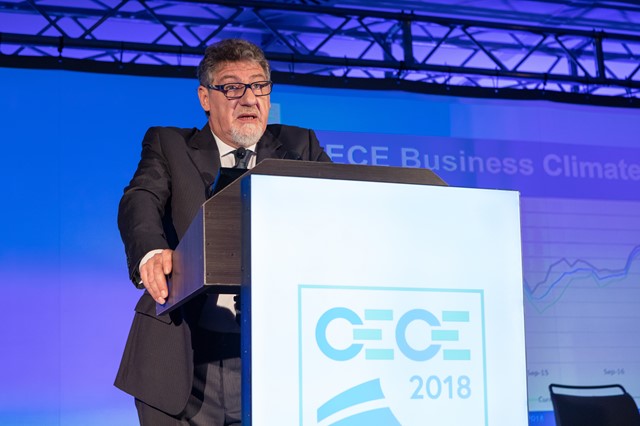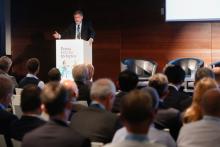
The Committee for European Construction Equipment (
The influential CECE’s call was made in Rome during the organisation’s latest biennial congress for the European construction equipment industry. Hosted by the Italian construction equipment association, UNACEA, CECE Congress 2018 saw nearly 200 delegates, including European and global business leaders, leading exhibition organisers, policy makers and economic researchers, discuss the future of the construction equipment industry, its road to digital transformation and the turning point in EU politics that is represented by the May 2019 European parliament elections.
With roughly 1,200 companies, the European construction equipment industry employs 300,000 people and generates revenues for €40 billion. For the second year in a row, the CECE biennial event took place in a positive economic environment. After booming with a 15% increase in 2017, sales of construction equipment in 2018 continue to grow all over Europe and keep on track for an estimated 5-10% increase at the end of 2018.
This is well represented by the CECE Business Climate Index – a monthly measurement of the sector’s business confidence – which, despite a slight cooling-off tendency, remains at extremely high levels, attesting for the overall optimism in the industry. This tendency is confirmed by the good conditions in the leading European markets in terms of public and private construction investments. In addition, expectations of further growth come from civil engineering and infrastructure, pushed upwards by certain flagship projects, such as the “Grand Paris” in France and the “HS2” in the UK. The market situation in the Congress host country, Italy, is also showing very positive signs, with a 25% sales increase in the first semester of 2018 and an overall production output of €2.6 billion in 2017.
This positive environment allowed CECE delegates at the Congress to discuss with substantial optimism the challenges coming from the global political environment, the technology drivers impacting construction and the regulatory developments from the EU level.
In terms of technology, the main driver for industry transformation is digitalisation. In the spirit of the Congress title, the CECE Congress addressed this topic with a value chain approach, involving the communities of machine users and clients in the conference programme. In addition, the result of an 8-month long project into the digital transformation of the construction industry was presented for the first time at the Congress.
On digital, CECE president Enrico Prandini said: “This study is another step of CECE’s investment into digitising our industry. In the last 8 months, a specialised team of consultants, supported by a small group including contractors and rental companies, have analysed how to facilitate the uptake of digital construction machinery in order to reap the benefits of data on productivity, safety and sustainability, our three major challenges. If there is one key takeaway from this project, in my opinion, is the need to change the business models to unlock the value creation of data.”
CECE prepares for the European Parliament elections of May 2019
With EU regulatory development coming to a slowdown and Brussels preparing for the deep institutional changeover of 2019, the Congress was also the occasion to officially endorse the CECE Manifesto for the European Parliament elections.






